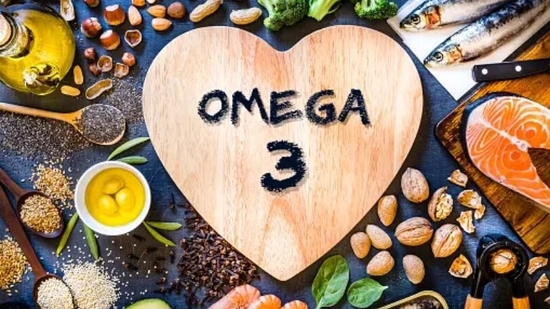Introduction: The Evolution of Healthy Eating
In 2025, nutrition is more than just a diet—it’s a lifestyle. Around the world, people are embracing new ways of eating that promote longevity, mental clarity, and environmental sustainability. Nutrition Trends in 2025 reveal a dramatic shift towards more conscious, tech-driven, and personalized food choices, setting the foundation for a healthier future.
The Rise of Plant-Based Diets
Plant-based eating has moved from the fringes to the mainstream. Restaurants in New York, Dubai, Tokyo, and Paris now feature gourmet vegan menus, and even traditional meat lovers are adding plant-forward meals to their routines.
Brands like Beyond Meat and Impossible Foods are innovating with healthier, less-processed plant proteins. In India and the UAE, startups are creating plant-based versions of cultural favorites like kebabs and biryanis, making the shift easier for diverse populations.
Personalized Nutrition Through AI
Thanks to advancements in biotechnology, nutrition in 2025 is hyper-personalized. DNA testing, microbiome analysis, and wearable technology now guide individual dietary recommendations.
Companies like Nutrigenomix and Zoe offer AI-driven apps that create tailor-made meal plans based on genetics, gut health, and lifestyle factors. This personalized approach is helping people prevent chronic illnesses like diabetes, heart disease, and obesity.
The Keto Evolution: Cleaner and Smarter
While keto diets remain popular, the trend has evolved. Instead of loading up on processed meats and fats, 2025’s keto followers focus on clean keto—rich in avocado, olive oil, fish, and organic meats.
New research emphasizes the importance of fiber and micronutrients, and clean keto brands are rising to meet the demand with healthier, whole-food options.
Regenerative Agriculture and Conscious Eating
Consumers today are not just asking “what am I eating?” but also “how was it grown?” Regenerative agriculture—which restores soil health and promotes biodiversity—is leading food sourcing discussions globally.
Brands proudly label their products as “regeneratively grown,” and farmers’ markets in places like California, Melbourne, and Dubai are seeing a surge in shoppers seeking environmentally conscious foods.
Functional Foods for Mental Health
The mind-body connection is at the heart of Nutrition Trends in 2025. Foods that enhance brain health and mood—such as turmeric, omega-3 rich fish, dark leafy greens, and fermented foods—are in high demand.
Functional beverages like adaptogenic teas, CBD-infused smoothies, and mushroom coffees are also booming, promising stress relief, better sleep, and cognitive support.
Intermittent Fasting Gets Smarter
Intermittent fasting (IF) continues to be popular, but the approach has become more flexible and personalized. In 2025, wearable health trackers help users optimize their fasting windows based on real-time glucose, cortisol, and energy level readings.
Apps like Zero and Fastic now integrate AI to suggest the best fasting schedules for individual metabolism, making fasting safer and more effective.
Sustainable Seafood and Alternative Proteins
With concerns over ocean health, sustainable seafood is a major focus. Innovations like lab-grown fish and plant-based seafood are helping reduce overfishing and protect marine biodiversity.
Brands like Good Catch and BlueNalu are expanding into global markets, offering alternatives that taste just like traditional seafood but without the environmental impact.
Gut Health Takes Center Stage
The importance of gut health has exploded into public consciousness. In 2025, probiotic foods like kimchi, sauerkraut, and kefir are pantry staples, and prebiotic-rich foods such as garlic, leeks, and bananas are being promoted for their gut-supporting benefits.
Supplements targeting specific gut bacteria strains for immunity, mood, and metabolism are becoming mainstream, with doctors frequently recommending microbiome testing as part of routine health checkups.
Global Influences on Nutrition
Cultural diversity is enriching global nutrition trends. Middle Eastern mezze, Korean kimchi, Indian lentils, and Mediterranean olive oil are being integrated into healthy diets worldwide.
People are now appreciating that “healthy eating” doesn’t mean bland salads—it can be flavorful, culturally rich, and satisfying.
Challenges in the Modern Nutrition Landscape
Despite these positive trends, challenges remain. Ultra-processed “health” foods can be misleading, labeled as natural or organic while being high in sugar and additives.
Food deserts, particularly in low-income areas, still limit access to fresh, healthy foods. Additionally, dietary misinformation spreads quickly online, making nutrition education more important than ever.
Governments, schools, and healthcare organizations are stepping up, promoting clear labeling laws and nutrition literacy campaigns globally.
What’s Next: The Future of Food
Looking ahead, Nutrition Trends in 2025 hint at an even more innovative future. Expect lab-grown meat to become more affordable, vertical farms to provide fresh produce in urban areas, and edible packaging to reduce plastic waste.
Advancements in biotechnology could soon allow us to personalize vitamins and nutrients into our daily foods without altering taste or texture.
Ultimately, the goal is a world where nutritious, sustainable food is accessible, affordable, and delicious for everyone.















